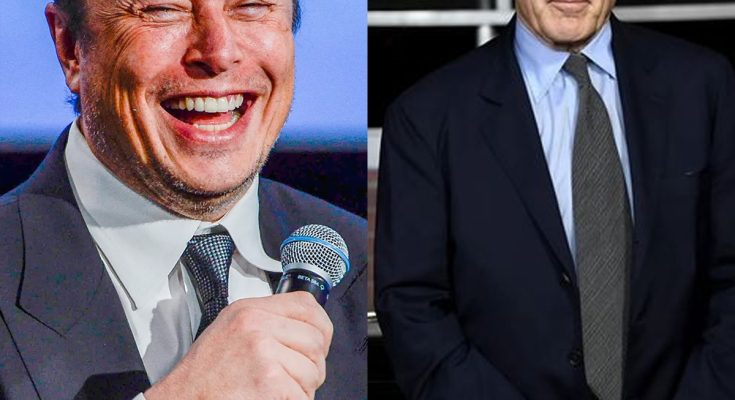Elon has just found himself in a heated showdown with Hollywood legend Robert De Niro. After years of De Niro’s fierce criticism of Donald Trump, things escalated when he compared Trump to dictators like Hitler and Mussolini. But Elon wasn’t having it. He took to social media, humiliating De Niro and calling his comments “illogical,” igniting a public feud. What happened next? De Niro reportedly spiraled into a meltdown, sparking a war of words that’s taken the internet by storm.

Elon Musk and Hollywood legend Robert De Niro have found themselves in a public feud that has taken the internet by storm, igniting conversations about free speech, political correctness, and the future of public discourse. This clash between Musk and De Niro may have started with politics, but it’s quickly evolved into a broader cultural debate. As a tech visionary, Musk has disrupted industries from space exploration to electric vehicles, while De Niro has built a legendary career in cinema, known for his complex characters and gritty performances. Their recent war of words has left many wondering what it signifies for the future of celebrity influence and ideological divides.
The feud began when De Niro, known for his outspoken criticism of former president Donald Trump, made inflammatory comments comparing Trump to dictators like Adolf Hitler and Benito Mussolini. De Niro has long voiced his disdain for Trump, famously calling him expletive-laden names and warning of the dangers he believes Trump poses to American democracy. Most recently, De Niro’s comments outside the courtroom during Trump’s hush-money trial sparked fresh outrage. For De Niro, the rhetoric comes from a place of conviction—he sees Trump as a threat to freedoms and democracy.
Musk, however, wasn’t willing to let these comments slide. Although he has expressed criticism of both sides of the political spectrum, Musk took to social media to denounce De Niro’s comments as exaggerated and illogical. In Musk’s view, comparing Trump to historical dictators undermines the seriousness of true autocratic rule. Musk argues that Hollywood elites, like De Niro, often preach about justice and equality yet live lives of extreme privilege, disconnected from the realities faced by average people.
This latest clash is more than just a personal spat. It taps into a broader cultural battle between Silicon Valley and Hollywood, each representing different ideologies about freedom, progress, and public responsibility. Musk, as a vocal proponent of free speech, has made clear his stance on “cancel culture” and political correctness, which he sees as limiting free expression. His purchase of Twitter (now X) in 2022 was partly driven by a desire to create a platform for open dialogue, a move that didn’t sit well with many in Hollywood. Musk’s promise to allow Trump back on Twitter (now X) if he wished, along with other controversial voices, alienated a number of celebrities who left the platform, criticizing Musk’s views on free speech.



